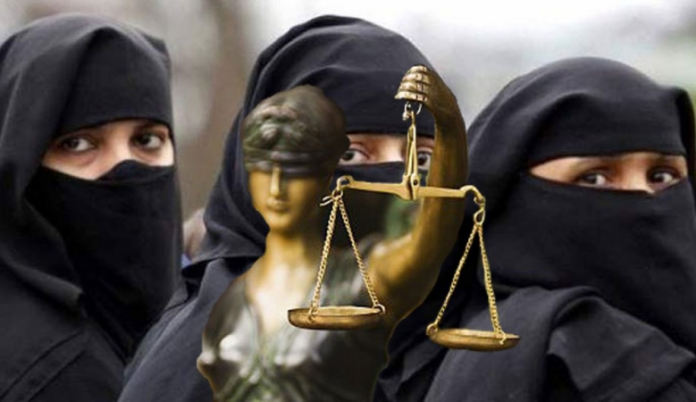By Dr. Babli Parveen
The recent verdict on Triple Talaq by the Honourable Supreme Court has created ripples in the society. It is discussed, debated, despised, welcomed, celebrated and even seen with apprehension.
Hardly few people bothered to go through the verdict and its implications. This verdict report runs through 295 pages and delivered by a bench of five judges with a 3:2 majority. The five judges, CHI J S Khehar, Justice Kurian Joseph, Justice R F Nariman, Justice U U Lalit and Justice S Abdul Nazeer agreed on the broad issue of the undesirability of instant talaq.
Amidst the media glare it can be opined that this judgement on Triple Talaqis neither historical nor landmark in any manner.
Let us try to understand this recent verdict of Honourable Supreme Court on Triple Talaq.
This verdict not about the TRIPLE TALAQ in general, but this verdict is particularly only about the “INSTANT TRIPLE TALAQ” and there is a sea difference between the both. The difference between the TRIPLE TALAQ and INSTANT TRIPLE TALAQ is the first condition to understand the entire issue and debate around it. The instant Triple Talaq is the pronouncement of three Talaq at one go, whereas the standard Triple Talaq also known as Talaq-ul-Sunnat (ideal form of divorce based on Sunna), involves the period of three months, between the first and final Talaq (Every month consists certain conditions and meant to give time for reconciliation). Many Muslim men started a new trend to divorce wife, through whatsapp, over the phone call or text message, without telling the reason or on asinine reasons. This was often done in the fit of anger or intoxicated state. Doubtlessly, this instant business of Talaq made life of many Muslim women miserable for forever.
Now, the question rises who gave recognition to Instant Triple Talaq. In Islam this kind of divorce form has been called “Talaq ul biddat” –irregular mode of divorce, which has no legitimacy, the Islamic Court doesn’t allow it. All Islamic Scholars and All India Muslim Personal Law Board too agree on the same theory. So, “Instant Triple Talaq” had never any recognition, neither by the Muslim Personal Law nor by the Indian law. In India, since AIMPLB application act 1937, the body has governed the social life of Muslim community; Marriage, divorce, inheritance and relationship within the family and in society. -So, it is evident that INSTANT TRIPLE TALAQ was always unconstitutional; the honourable SC simply informed us that its constitutional and we won’t accept it.
But, media, political parties and so called champions of Muslim interests, projected the simple existing information into a historical judgement. Thus Triple Talaq is still very much constitutional, Instant Triple Talaq was never.
Furthermore giving unnecessary focus and importance on this verdict, is a big mistake and reflect ignorance of people. Since, 15 years back, in 2002, in a landmark ruling in Shamim Ara v State of UP [ii] the Supreme Court invalidated arbitrary Triple Talaq and held that a mere plea of talaq in reply to the proceedings filed by the wife for maintenance cannot be treated as a pronouncement of talaq and the liability of the husband to pay maintenance to his wife does not come to an end through such communication. If anybody thinks that Triple Talaq is the cause of the suffering of Muslim women and backwardness one needs to sharpen the observation and outlook. According to the 2011 Census report despite of Instant Triple Talaq, the divorce ratio among Muslims is 0.56 % lower than Hindu 0.76%.
Mostly lower middle class women and lower class Muslim been affected by Triple Talaq. Lack of Education is the real perpetrator who keeps Muslim women of lower class ignorant and away from the Indian Law, Islamic Law and moreover since they are financially not independent so nobody takes their opinions and voices seriously. It couldn’t be easy for a man to divorce educated and financially independent women, who are aware about her human and legal rights. So, the problem is basically the financial dependency which keeps the life of middle class women under the threat of Instant Triple Talaq kind of situation.
Similarly, the claimant of custodian of Islam, Muftis and others who are holding important positions in the AIMPLB also taking the advantage of such women’s ignorant condition and often do not give proper and correct advice to them. AIMPLB need to introspect and try to bring clarity and awareness for the progress of Muslim Community. What is also striking the way political parties reacting on the verdict and a few even one trying to take the credit of this judgement, as it is something the achievement of a party. Which is not true as the Honourable Supreme court works independently and no party and government can interfere and influence the Supreme Court. The real challenge for Indian Judiciary has been not of giving judgement on serious social evil practices regardless religion, caste and communities. The genuine test is implementations of such verdicts at the ground level. For instances dowry system, child marriage & honour killing all are unconstitutional and illegal, we have strict laws against these practices. But, even then country is experiencing all these social issues at a very large scale. So, in that case the declaration on Instant Triple Talaq as unconstitutional is good but its success would be judged by its effective implementation.
It’s been many decades now that we keep hitting and discussing on Purdah system and Triple Talaq as the main culprit for the community’s backwardness, precisely for women. Its high time to get over of this stereotyping and the Government should smack on the real issues and tragedy of the community and serious steps must be initiated for the empowerment of Muslim Women through Education and employment.
(Dr. Babli Parveen is a historian & Assistant Professor of History at University of Delhi).


